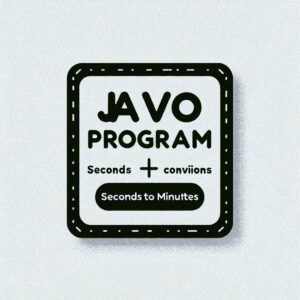Variables in C programming serve as fundamental elements for storing and managing data throughout a program. They act as containers that hold values, enabling developers to perform calculations, make decisions, and process information efficiently. Understanding C variables and scope is crucial for writing clean, efficient, and error-free code. Properly defining and using variable scopes—local, global, or static—helps control their accessibility and lifetime within a program, optimizing memory usage and functionality.
What Are Variables in C?
Variables in C are named storage locations used to hold data that can be manipulated during program execution. Each variable has a specific data type, determining the kind of value it can store, such as integers, floating-point numbers, or characters.
Syntax for Declaring Variables:
Editdata_type variable_name;
For example:
Editint age;
float salary;
char grade;
Examples of Common Data Types:
- int: Used for integers (e.g.,
int num = 25;) - float: Used for decimal values (e.g.,
float pi = 3.14;) - char: Used for single characters (e.g.,
char initial = 'A';)
Variables are essential for dynamic program behavior, allowing data to change and be reused across different parts of the program. Understanding their declaration, initialization, and scope is fundamental to mastering C programming.
Understanding Variable Scope
Variable scope in C refers to the region within a program where a variable is accessible. It defines the lifetime and visibility of a variable, which is critical for controlling how and where data can be used. Proper understanding of scope ensures efficient memory usage and prevents unintended variable overwrites.
C supports three primary types of variable scope:
- Local Scope: Variables declared within a function or block, accessible only within that region.
- Global Scope: Variables declared outside of all functions, accessible throughout the entire program.
- Static Scope: Variables with local or global visibility but persistent lifetime throughout the program execution.
Importance of Scope
- Ensures variables are accessible only where needed, enhancing security and modularity.
- Optimizes memory usage by releasing variables not in use.
- Prevents naming conflicts by restricting visibility to specific program areas.
Example of Scope Impact
Edit#include <stdio.h>
void example() {
int localVar = 10; // Local scope
printf("Local Variable: %d\n", localVar);
}
int globalVar = 20; // Global scope
int main() {
example();
printf("Global Variable: %d\n", globalVar);
return 0;
}
Local Variables in C
Local variables are declared inside a function or block and are only accessible within that region. They are created when the function begins execution and are automatically destroyed when the function ends. These variables ensure data privacy and reduce the risk of unintended interference with other parts of the program.
Key Characteristics
- Accessibility: Limited to the function or block where declared.
- Memory Allocation: Automatically allocated and deallocated.
- Usage: Ideal for temporary data storage.
Example:
Edit#include <stdio.h>
void display() {
int localVar = 5; // Local variable
printf("Local Variable: %d\n", localVar);
}
int main() {
display();
// printf("%d", localVar); // Error: localVar is not accessible here
return 0;
}
In this example, localVar exists only within the display function. Accessing it outside the function would result in an error. Local variables are pivotal for isolated and secure data handling.
Global Variables in C
Global variables are declared outside all functions, typically at the top of a program, and can be accessed by any function throughout the program. These variables retain their values for the entire execution of the program.
Advantages
- Accessibility: They can be shared across multiple functions.
- Convenience: Simplifies the code when variables need to be used in many parts of the program.
Potential Risks
- Accidental Modification: Any function can change the value, potentially leading to bugs.
- Memory Usage: Occupy memory for the program’s entire duration, even if not always needed.
Example:
Edit#include <stdio.h>
int globalVar = 100; // Global variable
void display() {
printf("Global Variable in display: %d\n", globalVar);
}
int main() {
printf("Global Variable in main: %d\n", globalVar);
globalVar = 200; // Modifying global variable
display();
return 0;
}
Static Variables in C
Static variables in C are declared with the static keyword. They differ from regular local or global variables because they retain their value between function calls while limiting their scope to the block in which they are declared.
Characteristics
- Scope: Limited to the function or block where declared.
- Lifetime: Retains value throughout the program execution.
- Usage: Ideal for counting function calls or maintaining state within a function.
Example:
Edit#include <stdio.h>
void counter() {
static int count = 0; // Static variable
count++;
printf("Function called %d times\n", count);
}
int main() {
counter(); // First call
counter(); // Second call
counter(); // Third call
return 0;
}
In this example, the count variable retains its value across function calls, enabling it to track how many times the function counter has been invoked. Static variables optimize memory usage by avoiding reallocation during each function execution while preserving essential data.
Comparison of Local, Global, and Static Variables
| Aspect | Local Variables | Global Variables | Static Variables |
|---|---|---|---|
| Accessibility | Accessible only within the block or function where they are declared. | Accessible throughout the entire program, across all functions. | Accessible only within the block or function where they are declared. |
| Lifetime | Exist only during the execution of the block or function. Destroyed once the block or function exits. | Exist for the program’s entire duration. | Retain their value across multiple calls and persist for the program’s entire duration. |
| Memory Usage | Allocated in the stack and deallocated automatically after function/block execution. | Allocated in global memory and remain allocated for the entire program. | Allocated in the data segment and persist across function calls until the program ends. |
| Use Cases | Temporary data storage for function-specific tasks. | Sharing information across multiple functions (e.g., configurations, counters). | Retaining state information between function calls (e.g., counters, flags). |
| Advantages | Prevent unintended access and modification. | Simplifies sharing data between functions. | Efficient state retention without reallocating memory in every call. |
| Disadvantages | Limited accessibility may require passing values explicitly. | Risk of accidental modification and increased memory usage. | Limited scope may restrict broader access, and improper use can lead to logic errors or unintended states. |
This table provides a concise comparison to help programmers choose the appropriate variable type based on their specific use case.
Practical Applications of Variable Scope
- Local Variables:
- Managing temporary calculations in mathematical functions.
- Storing data specific to a single function, like input validation or intermediate results.
- Global Variables:
- Sharing configuration settings or application-wide constants.
- Managing shared states, such as flags in multi-threaded programs.
- Static Variables:
- Retaining the state of counters in loops or recursive functions.
- Implementing singleton patterns or caching repeated calculations for efficiency.
- Managing flags or settings that persist across function calls in embedded systems.
Understanding and applying the correct scope ensures efficient memory management and improves overall program design.
Test Your Knowledge: Quiz on Scope and Variables in C Programming!
- What is the default scope of a variable declared inside a function?
- a) Global
- b) Local
- c) Static
- Which keyword is used to declare a global variable in C?
- a) extern
- b) static
- c) int
- What will be the output if we print a static variable without initializing?
- a) Compilation Error
- b) Garbage Value
- c) Zero
- Can a global variable be accessed from any function in the same program?
- a) Yes
- b) No
- c) Only if declared with ‘extern’
- In which section of the memory do static variables get stored?
- a) Stack
- b) Heap
- c) Data Segment
Common Mistakes and Debugging Tips
- Mistakes to Avoid:
- Declaring global variables without initialization, leading to undefined behavior.
- Using local and global variables with the same name, causing confusion and potential logic errors.
- Misunderstanding static variable retention and assuming their value resets between function calls.
- Overusing global variables, leading to tightly coupled code and maintenance challenges.
- Forgetting that local variables cannot be accessed outside their scope.
- Debugging Tips:
- Use meaningful and unique names for variables to avoid name conflicts and improve code readability.
- Always initialize variables, especially global ones, to avoid undefined values.
- Use comments to clarify the purpose of static and global variables.
- Leverage debugging tools to track variable values and identify scope-related errors.
- Review scope rules carefully when troubleshooting variable accessibility issues.
Conclusion
Variables and their scope are foundational in C programming, influencing program behavior and design. Understanding local, global, and static variables equips developers to write efficient and maintainable code. Practice with coding examples and debug effectively to master these concepts and enhance your programming skills.
In conclusion, understanding Scope and Variables in C Programming: Local, Global, and Static is crucial for efficient coding. Mastery of these concepts enables well-organized and clean code. For more learning resources, check out Newtum. Dive deeper into C programming today and keep exploring!
Edited and Compiled by
This blog was compiled and edited by Rasika Deshpande, who has over 4 years of experience in content creation. She’s passionate about helping beginners understand technical topics in a more interactive way.



